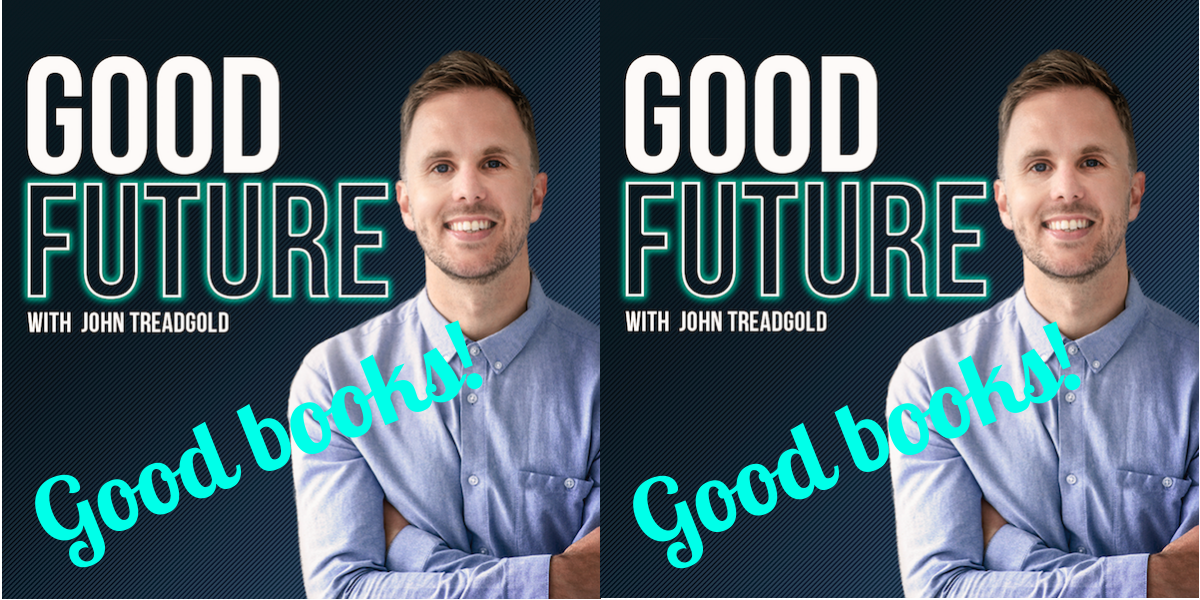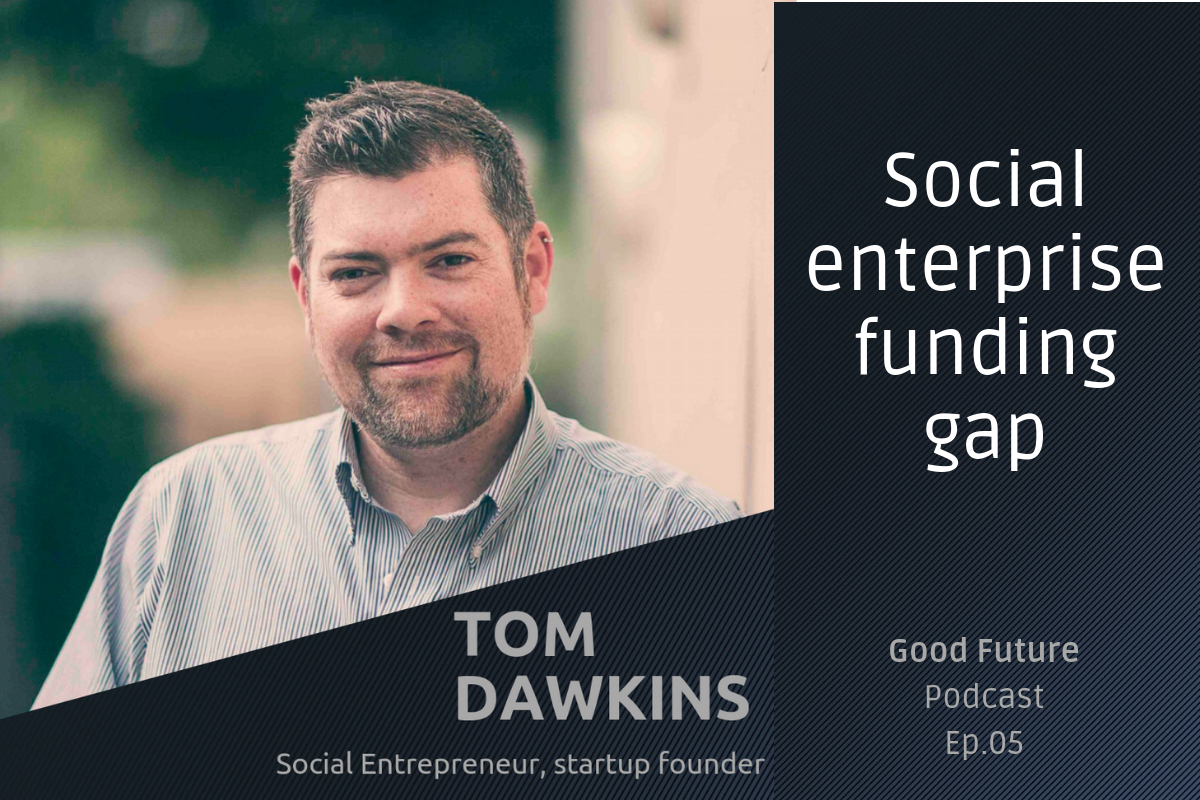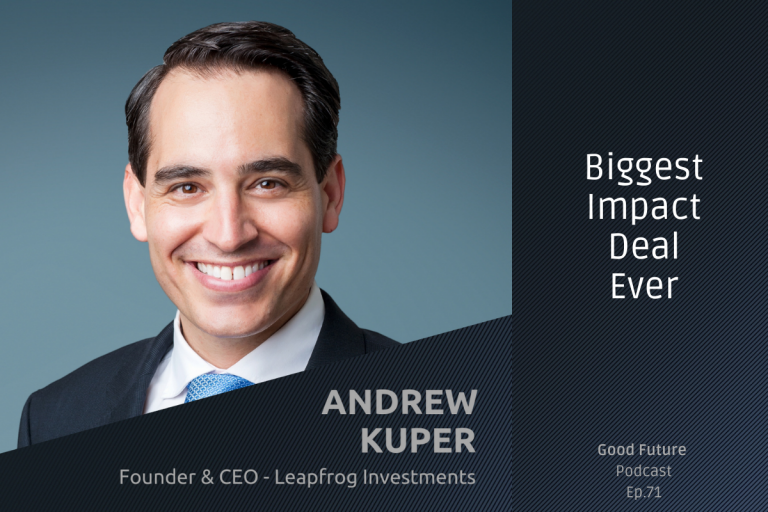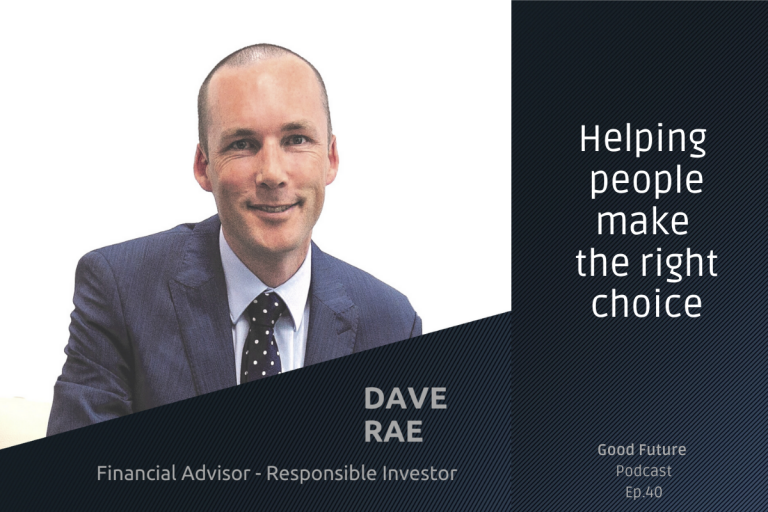Simon Griffiths
(You can find the episode here)
How Constant Innovation Creates Radically Successful Businesses
By: Eric Ries
I’ve recommended it consistently. For anyone who’s thinking about a start-up, or putting something out to the world for the first time, it’s definitely worth it.
By: Elad Gill
It’s for when you’re at a more advanced stage. For me the first half of the book felt like he’d written about our business, as if he’d interviewed our staff. He went through all the same stages that we went through. And so I feel confident that the next half of the book would be all of the challenges we had before us.
Rosemary Addis
(You can find the episode here)
By: Jim Collins
It’s a short but punchy book. It’s important for anyone who wants to have an impact.
Down and out in Paris and London
By: George Orwell
It keeps it real for me in terms of humility and compassion for other people.
This is more of a fiction read, but it’s an important reminder to all of us that we could have a very different life through a combination of poor decisions and bad luck.
Radek Sali
(You can find the episode here)
The Golden Secret
By: Jonathon Pollard
It’s his personal journey, but it also provides some tools for dealing with the chaos today and get your game ready to make massive change in your circle of influence.
Lindsay Smalling
(You can find the episode here)
By: Wallace Stegner
It’s an amazing writer and what I love is that nothing really happens in it. It’s just a story. Somehow it was just so beautiful to read for that reason. It may not entice many people to read, but it’s a really beautifully written book.
Simon Holmes a Court
(You can find the episode here)
The History and Future of Climate Change in Australia
By: Joelle Gergis
One of the best things I’ve read lately is by Dr Joelle Gergis, Sunburnt Country, she’s a Melbourne University climate scientist, and she’s a contributor to the IPCC. She’s written a book about the climate history of Australia. Going back prior to European settlement, looking at the colonist’s challenges in dealing with Australia’s variable and harsh climate.
She puts it into context about how fragile our climate is in Australia, or I should say, how reliant we are on a benign climate, and how quickly that’s changing.
Berry Liberman
(You can find the episode here)
Memories, dreams, reflections.
Autobiography, by Carl Jung
By: Dalai Lama, Desmond Tutu, and Douglas Abrams
In April 2015, Archbishop Tutu travelled to the Dalai Lama’s home in Dharamsala, India, to celebrate His Holiness’s eightieth birthday and to create this book as a gift for others. They looked back on their long lives to answer a single burning question: how do we find joy in the face of life’s inevitable suffering?
Paul Brest
(You can find the episode here)
Our Man: Richard Holbrooke and the End of the American Century
By: George Packer
I’m reading a totally fascinating book right now. It doesn’t relate to anything we’ve been talking about today, it’s a biography of Richard Holbrook, who negotiated a peace treaty in the former Yugoslavia it’s a biography by George Packar. He was an obnoxious ego-maniac, but essentially, he was responsible for bringing peace to the Balkans. It’s a fascinating read. I would recommend that to anybody.
Andrew Kuper
(You can find the episode here)
Jeff Bezos and the Age of Amazon
By: Brad Stone
The House That Jack Ma Built
By: Duncan Clark
“What I like about these two books is the clarity that those founders had about what they were trying to achieve and what the measurements were. And every technique and approach and hire and strategy they came up with, was oriented towards that vision, and those values and sense of priorities. I sometimes think that is the critical thing in business. To have that kind of orientation to what you’re trying to achieve.
They really designed everything from the customer backwards. I really love those kinds of books that give you that vision.”
Genghis Khan and the making of the modern world
Jack Weatherford
“What I love about that book is it reveals that we have this image in the west that we created the modern world, that we were the innovators. That we ended torture and we brought human rights to the world. In fact we need to see that the industrial revolution and the enlightenment are only about 250 years old. Human societies have been going on for a lot longer than that.
If you look at Genghis Khan, he was vilified because he beat Europe and China in wars and he outlawed many outrageous things that the West was perfectly comfortable with. Like witch burnings and things like that.
He was excellent at adopting technologies. He introduced meritocracy. That’s why he won wars because he promoted people of the country and societies he conquered. He did a skills analysis and he promoted them into his army and into his management infrastructure. Based on their skills and merit. And when they faced off against countries that promoted based on families, Ghengis khan won.
It’s wonderful to think about the world in that way, with a much broader frame. To see where you can glean insights and take off the glasses other people have given you, where innovation and progress come from. I’m constantly struck by how many innovations from developing countries are relevant for developed countries.
Like in Kenya, M-Pesa, it’s money transfer that happens seamlessly. The vast majority of the population use it. They don’t use banks. They’ve dis-intermediated all the middle-men. My sense is that progress comes from places you don’t expect.
When you read great literature it helps you to see the world in a different light. And to see the perspective through the eyes of outsiders.”
Mark Reading
(You can find the episode here)
A language of life
By Marshall Rosenberg
That book has had a profound impact on the way in which I communicate with people and build relationships.
By Matthew Walker
Scott Farquar, one of the Atlassian founders, actually gave me this book last Christmas. With a note that said there are only three books that have fundamentally changed his behaviour.
A science-based analysis of sleep and the impact it has on the body and the brain. Having read it’s changed my behaviour.
Pablo Berrutti
(You can find the episode here)
Seven ways to think like a 21st century economist
Kate Raworth
“It’s one of the best books I’ve read on this topic recently. She’s a brilliant women who works at Oxford University and she did a lot of work with Oxfam.”
Tim Winton
“His most recent book, he’s my favourite Australian author, really lyrical and colourful in the way that he writes. It’s a good read. It builds tension well.”
Anna Crabb
(You can find the episode here)
Bruce Pascoe
“The thing that’s amazing, is how the truth of Australia’s history was manipulated form the records. Bruce does a brilliant job of distilling exactly how we have come to understanding the history as we do today, and how that’s completely wrong. And the innovation and ingenuity and the entrepreneurialism of first nations people back then, as well as now. I highly recommend it.”
Claire Rogers
(You can find the episode here)
Stephanie Saldana
Romance set in Syria in 2005 before the deep troubles, a profound insight into women of Muslim background and the authors Christian heritage, and how they come together. In a world where 85% of people are religious, and those numbers are growing, we don’t quite realise that, we live in a very secular society in Australia. But the rest of the world is not like us. It was such a beautiful story, but also a great opportunity to understand the role of faith in other cultures. Both relaxing and enhanced my leadership because of that understanding.
Adam Verwey
(You can find the episode here)
How to Overcome the Predictable Crises of Growth
By: Chris Zook, James Allen
In the office we tend to read books about startups ad how to scale a business. It took me a wile to realise how hard it is to run a great business, and taking to read has been really helpful. I’m currently reading the founders mentality, which I m really enjoying, it’s highlighting how being at the front lines is something I enjoy.
The hard thing about hard things
Building a Business When There Are No Easy Answers
By: Ben Horowitz
Many books on startups focus on the sexy side of things, but there’s actually a lot of really hard things that happen everyday that you just don’t think about. And I think that book is really helpful in covering off on those things. And I turn back to it quite often when difficult things come up and I wonder how should I start thinking about these things.
Damon Gameau
(You can find the episode here)
By Jason Hickle
Is a really interesting book looking at some of the mechanism and the blocks to the system that might inhibit us from getting to 2040. It really great breakdown on particular rules, like trade treaty rules and things that are in the way of us reaching this better more sustainable future. And that’s a really good insight.
A Global Toolkit of Perennial Crops and Regenerative Agriculture Practices for Climate Change Mitigation and Food Security
By: Eric Toensmeier
Looking at how we can pull this carbon out of the atmosphere without building giant carbon sucking machine on the edge of our cities or big geoengineering projects. By actually growing more wonderful foods that we actually love like macadamias and chocolate and coffee and things like that. And that’s a revolution I want to be part of.
By Kate Raworth
Drawdown
By Paul Hawken
Georgina Camp
(You can find the episode here)
By Madeline Miller.
This book has ruined me. Nothing I pick up can compare. It’s her second book, her first book was song for Achilles. And she takes the lesser known characters from Greek Mythology and then expands and fleshes out their story. Song for Achilles was through the eyes of Achilles lifelong friend and lover Patriclus.
And then Circe is a lesser known character, she’s the daughter of the sun god Helios. And she was banished to an island. But she eventually chose to become mortal, she interacts with human. She’s different to the rest of the gods, she has empathy for humans and chooses to become human. It’s a beautiful story about the beauty of being human.
Elyse Sainty
(You can find the episode here)
By Yuval Noah Harari
It’s very thought provoking for a member of the human species. The theme that made me ponder the most, that progress may be good for the species as a whole but it might not necessarily work out well for all the members at an individual level. That really resonated for me and we need to be careful what we wish for.
We need to watch out for perverse incentives just like in SIBs.
Joel Solomon
(You can find the episode here)
By Morgan Simon
She has devoted her life to activism on social justice issue, and she is also an investment advisor for creative deployment of capital towards rebalancing and making things more fair.
She advises high net worth individuals. She’s written a book on the different kinds of ownership forms and capital that are coming about. I definitely recommend it so you can get a flavour for that.
Drawdown
By Paul Hawkin
It maps out the climate disaster that’s possible. It maps out 99 solutions to climate. And as we drawdown our carbon allotment on the planet these are some specific practical things you could do in may different fields. And it’s worth noting, if you had up 3 of the top 20 it’s investing in the wellbeing of women globally, is the most significant climate positive impact that can happen, and you’ll have to read the book to get the explanation of that.
Simon O’Connor
(You can find the episode here)
By Kate Raworth
“A really nice and quite approachable book that talks about how economic systems need to sit within the physical and natural and social systems we operate in. And its putting economics back in its place within the broader eco-system and planetary boundaries, it does a really good job for setting a framework for how economist systems need to interact with natural and social systems.”
Matthew Weatherley White
(You can find the episode here)
Go Rin No Sho – The Book of Five Rings
By: Musashi Miyamoto
“It’s a book about the Shinto/Buddhist version of The Art of War. It’s way more humble, it’s really personal. I’ve read his biography as well, but it’s a really short and dense and you read small sections. It’s about how you can interact with your own life basically.
I think of it as one of the world’s first self-help books.”
A Gentleman in Moscow
By Amor Towles
“It’s about this aging Russian aristocrat who just happens to be out of Moscow during the Bolshevik revolution and he’s surprised to find himself a prisoner and live his entire life gradually shabifying old hotel in Moscow. And he reflects on Russia and his life.”
Anthony Doerr
“This one I wish I’d written myself. It’s by a neighbour here in Boise. It’s a random nod to Japanese Samurai literature.”
Seb Beloe
(You can find the episode here)
By Francis Fukyama
“The author is a well-known US academic and the book is all about social capital and the importance of relationships and trust in societies. About how central it is in sharing a sense of shared agenda for communities. At a local and national level, and particularly at the moment, I read this book twenty years ago, I re-read it and it’s got a lot to say about where we are today. And how we’re seeing a fracturing of social linkages and trust within nations and we feel this particularly in the UK with Brexit. It’s just a reminder of how important social capital is in what we do professionally. Trust and relationships are so important for happy fulfilling lives.”
By Robert Harris
(Seb’s current fiction pick. Have a read and let us know what you think.)
Kylie Porter
(You can find the episode here)
By Jeffrey Sachs
It was a book that really purred me in some way to do my masters in social science and that’s The End of Poverty. He was a special advisor to Kofi Annan at the time, and he’s a development economist. He was fundamental in the development of the SDGs and for me that book really demonstrated the power of humans to make a real difference for people living in extreme poverty. And how partnerships between the private sector and civil society and government can actually change the world. Like he said, end poverty. That it is possible in our lifetime. It just requires us to be more cognisant of what we’re doing on a daily basis.
Giles Gunesekera
(You can find the episode here)
By, Ziauddin Yousafzai
“The father of Malala, Zia talkas about women’s empowerment. One of the fascinating stories behind Malala’s journey was that she was the first woman to ever be put onto the family tree. In Zia’s family they only ever showed the men. The women didn’t exist on the tree. And he was insistent that Malala’s name go onto that family tree.
What I love about Zia stands for, is about women’s empowerment, but more importantly it’s about men talking about women’s empowerment. There’s a great quote that says, it is the right of the oppressed to speak up, but it’s the right of those observing to speak out. And think that’s exactly what we need to do when it comes to gender equality.”
It’s the males that need to be really active about speaking up about gender equality. I just love his journey, and Malala’s. But the more males that
Jed Emerson
(You can find the episode here)
“Many of these are books I set out to write myself, but then I discovered they’d already been written. So it kind of takes you back to the drawing board each time.” Jed says.
By Thomas Sedliczech
By Karen Armstrong
“She is a religious historian and wrote this book to explore the interplay between religion and economics, and basically all of the dynamics there.”
Giles Hutchison
“He’s a business strategist, and has a good blog series.”
Also… read the classic philosophers. They all have parts of an answer that will help.
Adam McCurdie
(You can find the episode here)
By: Yuval Harari
I’d recommend anybody who’s interested in where as a species and as a socie we might be heading and why. The kinds of things we should be aware of if we want to craft a better world for ourselves. The book very cleverly looks back to look forwards, with a lot of research. A very interesting read that can be applied in so many ways depending on what you do.
Laurie Spengler
(You can find the episode here)
Editor/founder: David Bank
“My recommendation is Impact Alpha, which is an online daily news feed of what’s happening in impact. It’s a very quick and easy daily read, and it gives you, in just five or ten minutes, just a quick sense of activity and momentum.
I think Impact Alpha is a smart, clearly articulated resource to keep your finger on the pulse. And to keep that breadth of awareness, to then invite you to dig into some things for deeper pursuit.”
Simba Marekera
(You can find the episode here)
Elements of Impact, Financial Flows and Personal Being
By Jed Emerson
It explores the historic roots of our understanding of capital, investing and wealth management, connecting how we think about finance with how we think about our lives, our world and ultimately, personal purpose and impact.





